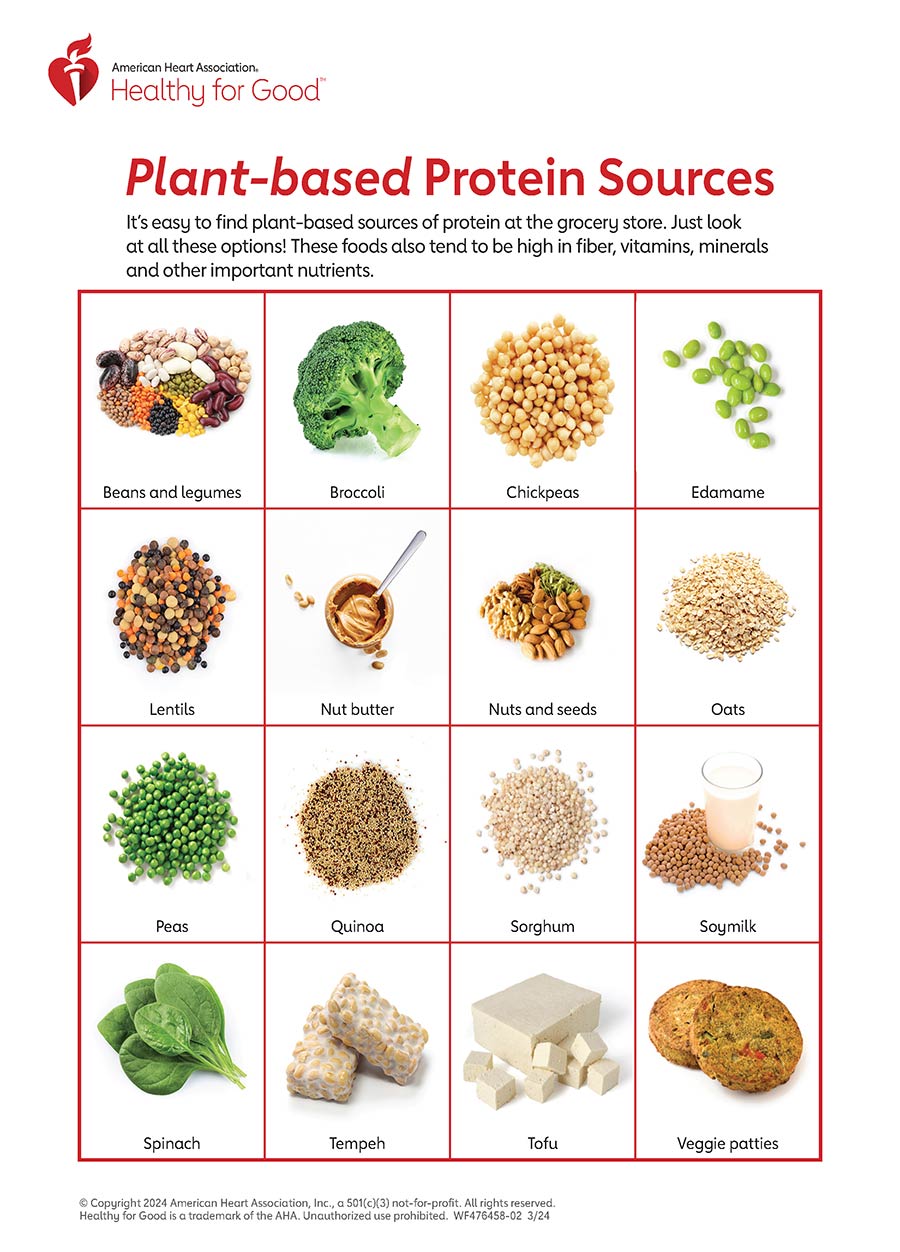What Athletes Say About Recovering on a Plant Based Beef Diet
What Athletes Say About Recovering on a Plant Based Beef Diet
Blog Article
Everything About Healthy Food: Benefits of Embracing Plant Based Options
The discussion surrounding plant-based diets has acquired considerable attention in current years. Several people are discovering the possible health and wellness benefits, nutritional benefits, and environmental influences connected with these dietary options. As people end up being much more familiar with their food's impact on health and sustainability, concerns develop about the practicalities of taking on such a lifestyle. What specific adjustments can one expect, and how might these choices improve not only personal health and wellness yet likewise the planet's future?
Recognizing Plant-Based Diet Plans
Numerous individuals associate plant-based diet regimens primarily with vegetarianism or veganism, these diets can include a vast range of consuming patterns that prioritize whole, minimally refined plant foods. Such diet regimens commonly include fruits, veggies, entire grains, nuts, beans, and seeds, while removing or restricting animal products. This adaptability permits individuals to tailor their nutritional choices according to nutritional requirements and individual choices. Some may adopt a mostly plant-based diet regimen while still sometimes consuming meat or milk, typically described as a flexitarian approach. The focus continues to be on incorporating more plant foods, which can result in a diverse selection of tastes and dishes. Comprehending these various interpretations of plant-based consuming is vital for valuing its accessibility and charm in modern food culture.
Health Advantages of Plant-Based Foods
The health and wellness advantages of plant-based foods are substantial, offering a nutrient density advantage that sustains overall wellness. Research study suggests that these foods can boost heart wellness and play a necessary role in effective weight management. By including more plant-based options, individuals may enhance their dietary options and promote long-lasting health and wellness.
Nutrient Thickness Advantage
Nutrient thickness plays an essential role in the health and wellness advantages of plant-based foods, making them an engaging choice for those seeking a well balanced diet regimen. Plant-based foods, such as fruits, veggies, beans, nuts, and whole grains, are typically abundant in important vitamins, minerals, and antioxidants while being lower in calories. This high nutrient thickness permits individuals to eat fewer calories while still fulfilling their dietary demands. In addition, these foods are loaded with nutritional fiber, advertising digestion wellness and assisting in weight management. By incorporating nutrient-dense plant-based choices, consumers can enhance their total wellness, support their immune systems, and minimize the threat of chronic diseases. Inevitably, the nutrient density of plant-based foods emphasizes their value in a health-conscious way of living.
Heart Health Enhancement

Weight Administration Assistance
In addition to promoting heart health, a plant-based diet regimen can substantially assist in weight management. This dietary technique stresses whole foods such as fruits, vegetables, legumes, nuts, and whole grains, which are normally lower in calories and higher in fiber compared to animal-based items. The high fiber web content helps raise satiety, reducing overall calorie consumption. Plant-based diets are commonly abundant in important nutrients while low in unhealthy fats, making it less complicated to keep a healthy weight. Study indicates that individuals who embrace a plant-based way of life have a tendency to have reduced body mass indexes (BMIs) and experience more effective weight reduction contrasted to those that consume meat-heavy diets. Subsequently, welcoming plant-based choices is a tactical selection for effective weight monitoring
Nutritional Value of Plant-Based Ingredients
Plant-based active ingredients are abundant in crucial nutrients, using a diverse range of vitamins, minerals, and anti-oxidants that add to overall health. A comparison of healthy protein resources exposes that while pet products are typically considered as remarkable, several plant-based alternatives supply sufficient protein and other beneficial compounds. Understanding the nutritional worth of these components can aid people make notified nutritional choices.
Necessary Nutrients in Plants
Nutrient-rich active ingredients discovered in plants provide a diverse selection of necessary nutrients that contribute greatly to overall wellness. These components are rich in vitamins A, C, and K, which support immune feature, vision, and blood clotting, respectively. In enhancement, plants supply important minerals such as potassium, calcium, and magnesium, important for heart wellness, muscular tissue feature, and bone toughness. The visibility of fiber in plant-based foods help food digestion and promotes a healthy and balanced digestive tract microbiome. Antioxidants, found perfectly in vegetables and fruits, assistance fight oxidative anxiety and reduce swelling. In addition, numerous plant foods are reduced in calories yet high in nutrients, making them an exceptional selection for those looking this contact form for to maintain a healthy weight while guaranteeing ideal nutrient consumption.
Comparing Protein Sources
Healthy protein resources differ significantly in their nutritional profiles, with plant-based components using distinct benefits. Unlike pet healthy proteins, which usually consist of hydrogenated fats and cholesterol, plant healthy proteins have a tendency to be reduced in these undesirable components. Legumes, nuts, seeds, and whole grains are abundant in essential amino acids, fiber, vitamins, and minerals. Lentils supply high protein web content along with significant iron and folate, while quinoa is a complete protein, supplying all 9 important amino acids. In addition, plant-based proteins are usually accompanied by anti-oxidants and phytochemicals that sustain overall health and wellness. The change to plant-based protein resources not just boosts nutritional consumption however also straightens with lasting nutritional methods, lowering ecological effect and promoting long-lasting health and wellness advantages.
Ecological Impact of Plant-Based Eating
As recognition of environment modification grows, many individuals are exploring lasting nutritional selections that can greatly reduce their ecological footprint. Plant-based eating has become a considerable contributor to decreasing greenhouse gas discharges, which are mainly connected with animals manufacturing. The cultivation of fruits, vegetables, vegetables, and grains commonly requires fewer sources, such as water and land, contrasted to pet farming. In addition, visite site plant-based diet plans can bring about lowered deforestation, as much less land is needed for grazing animals or expanding animal feed. By changing towards plant-based alternatives, customers can sustain biodiversity and promote healthier environments. On the whole, accepting plant-based eating not only advantages personal health however likewise stands for an important action towards ecological sustainability and conservation initiatives.
Conquering Common Misconceptions
While several people acknowledge the benefits of a plant-based diet plan, numerous mistaken beliefs commonly discourage them from totally welcoming this way of life. An usual idea is that plant-based diet regimens do not have sufficient healthy protein; nonetheless, countless plant resources, such as beans, nuts, and tofu, offer enough protein. Furthermore, some assume that this diet regimen is costly, when as a matter of fact, staples like beans, rice, and seasonal veggies can be quite cost effective. One more misunderstanding is that plant-based consuming is overly restrictive, whereas it in fact provides a diverse selection of foods and flavors. Lastly, several fret that a plant-based diet regimen may result in shortages, yet with proper preparation, individuals can get all needed nutrients, consisting of vitamins and minerals, while delighting in a vast range of tasty dishes.
Tips for Transitioning to a Plant-Based Way of living
Making the change to a plant-based lifestyle can be an improving experience, though it often requires some advice to browse the preliminary adjustments. Initially, individuals are urged to begin gradually, incorporating even more fruits, vegetables, legumes, and whole grains right into their dishes while reducing meat and milk usage. Dish preparation is essential; preparing a regular menu can assist alleviate the adjustment and protect against last-minute undesirable choices. Discovering cooking methods and new recipes can likewise preserve and improve the experience excitement about plant-based eating. In addition, joining support system or communities can offer inspiration and share useful ideas. Lastly, remaining notified concerning nutrition warranties well balanced meals, protecting against deficiencies while cultivating a healthy and balanced, enjoyable plant-based way of living.
Delicious Plant-Based Meal Concepts
Exploring scrumptious plant-based meal concepts can influence people to accept click here now a more healthy diet regimen. One preferred alternative is a hearty quinoa salad, including cherry tomatoes, cucumber, and a tangy lemon-tahini clothing. An additional fave is a full-flavored lentil stew, packed with carrots, celery, and great smelling herbs, excellent for a calming supper. For morning meal, overnight oats made with almond milk, chia seeds, and topped with fresh berries give a nutritious beginning to the day. Furthermore, a vivid veggie stir-fry with tofu and a variety of vivid veggies can be a fast yet pleasing dish. Lastly, luscious avocado toast on whole-grain bread, sprinkled with seeds and flavors, provides an easy yet savory snack. These dishes display the range and richness of plant-based eating.

Regularly Asked Inquiries
Can a Plant-Based Diet Give Sufficient Healthy Protein?
The question of whether a plant-based diet plan can offer sufficient healthy protein is common. Various resources, including legumes, nuts, seeds, and whole grains, can meet healthy protein needs properly, sustaining a well balanced and nutritious diet plan for individuals.
Are Plant-Based Diet Regimens Appropriate for Kid?
The viability of plant-based diet plans for youngsters depends on careful preparation. Adequate nutrients have to be guaranteed, consisting of minerals, vitamins, and proteins. With proper guidance, such diet regimens can support healthy growth and advancement in kids.
Just how Do I Dine Out on a Plant-Based Diet?
Eating in restaurants on a plant-based diet plan includes seeking dining establishments with diverse food selections, requesting adjustments, and checking out vegan-friendly choices. Preparation in advance and interacting nutritional preferences can improve the eating experience while preserving nutritional options.
What Are Usual Allergens in Plant-Based Foods?
Common irritants in plant-based foods consist of soy, gluten, nuts, and seeds - Plant Based Beef. Individuals following a plant-based diet ought to understand these allergens and review labels very carefully to avoid negative reactions and guarantee risk-free consumption
Can Plant-Based Diets Help With Weight Management?
Research study shows that adopting a plant-based diet plan might assist in weight-loss due to its typically lower calorie density and greater fiber material. This mix can enhance satiety, aiding individuals manage their calorie consumption efficiently. Lots of people link plant-based diet regimens generally with vegetarianism or veganism, these diets can encompass a vast variety of eating patterns that prioritize whole, minimally processed plant foods. Nutrient density plays an important role in the health benefits of plant-based foods, making them an engaging choice for those looking for a well balanced diet. Plant-based diet regimens have actually been shown to markedly boost heart wellness, as they commonly include components that sustain cardio function. In enhancement to advertising heart wellness, a plant-based diet can considerably aid in weight management. A typical belief is that plant-based diets do not have adequate protein; nonetheless, various plant resources, such as legumes, nuts, and tofu, offer sufficient healthy protein.
Report this page